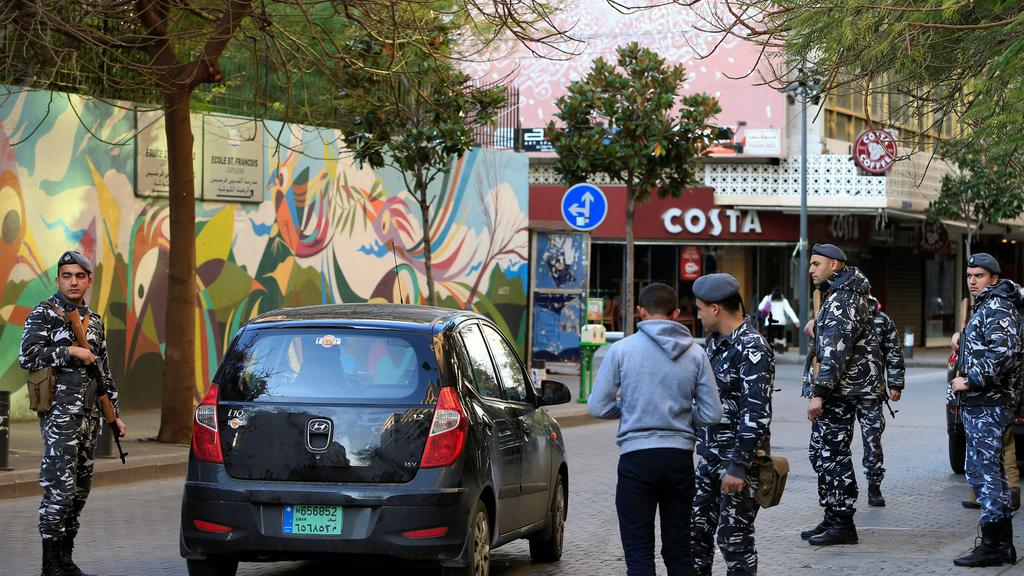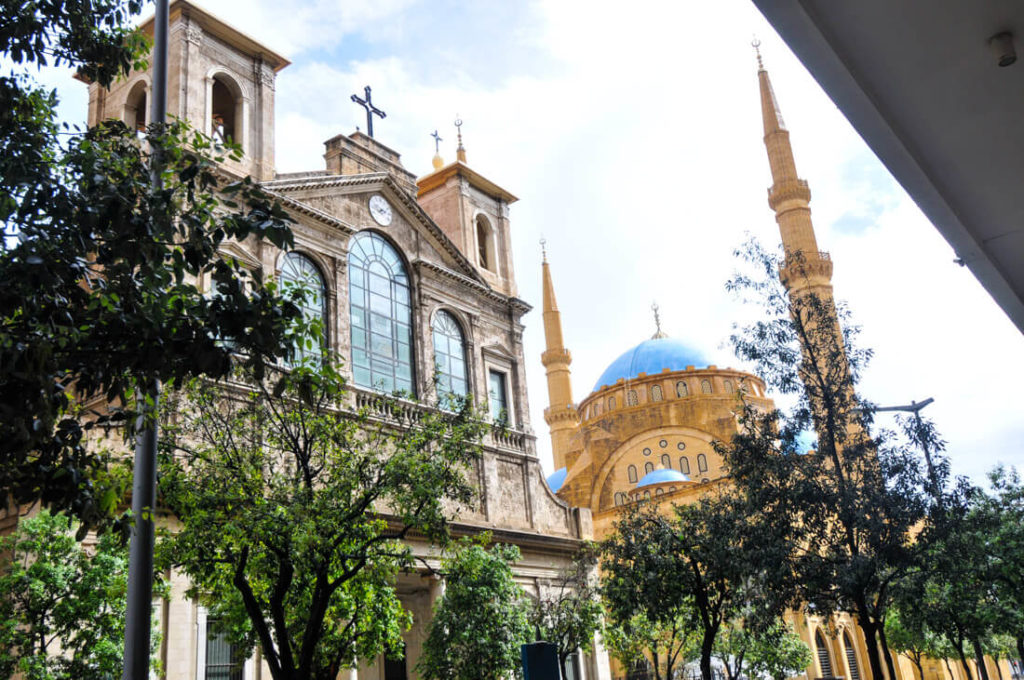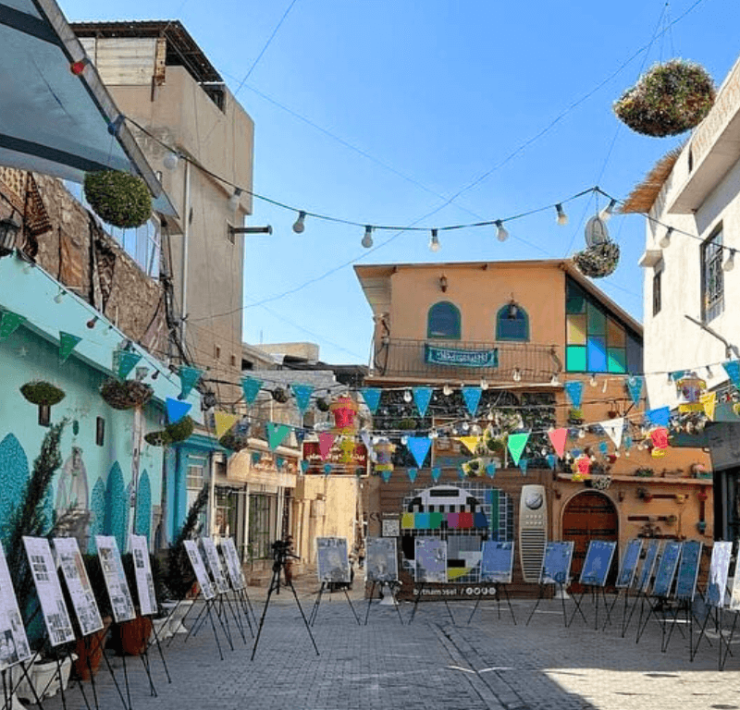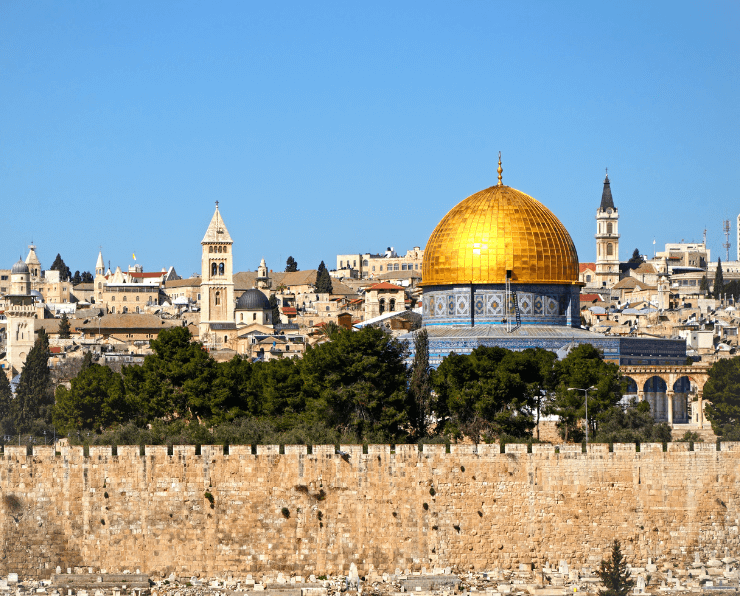Have YOU always thought about studying Arabic in the Middle East but never known where to go or how to start? Well, worry no more because Pink Jinn is going to break it down for you, city by city.
We’ve created this clear, honest guide based on our own experiences to show you the good, the bad, the wonderful and the downright weird of studying abroad. Whether you’re a university student, a young professional with an interest in the region or you’re simply looking for a new adventure, this guide will help you find the perfect place for YOU to learn Arabic. This week…
BEIRUT, LEBANON
 (image: Ani Anywhere)
(image: Ani Anywhere)
“The Paris of the East”; “The City that Would Not Die”; the beating heart of the Middle East… Beirut is fun, young and buzzing – with a hint of shell shock.
Beirut’s grand colonial buildings and Parisian style boulevards are pock-marked with bullets from the war that ripped open the city’s heart. Beirutis have known pain and suffering; they’re no strangers to the daily frustrations that come with post-conflict reconstruction and political gridlock.
Yet throughout every power cut, rubbish crisis and security threat, they never let life grind to a halt. The city’s energy is infectious; addictive. Beirutis themselves are resilient, live-for-the-moment kind of people. The younger generation in particular are always well-dressed and ready to have a good time.
It’s not necessarily the easiest place to learn Arabic, but Beirut is the place to be if you want to get an authentic feel for the Middle East and have some fun.
Perfect for: party-goers; the people who always want to be at the heart of the action
 (image: Lonely Planet)
(image: Lonely Planet)
Dialect
If you already study Arabic you’ll be aware that dialects tend to differ from country to country, and sometimes from town to town. Most students learn Modern Standard Arabic (MSA or fusha), which you’ll read in the media, official documents and the Qu’ran, however this is not as commonly spoken on the street.
The Lebanese dialect is, like other Levantine dialects, not outrageously different to MSA – but like all things Lebanese it has its own unique style and flare. It’s creative and a little bit sing-song, and its development has been influenced by Aramaic, Turkish, French, and English.
But be warned, while the Lebanese dialect sounds great, Beirut is not the easiest place to learn Arabic – particularly for beginners. Most of the Beirutis you’ll meet will speak very good French or English, and they’re much more likely to try and talk to you in your own language than to humour you while you practice your Arabic – particularly if you’re trying to speak MSA! It can be difficult to find locals who are genuinely willing to practice with you.
If you spend a while living in Beirut you’ll be able to pick up some Lebanese dialect (‘amiyya), but it helps if you have a solid foundation in Arabic to begin with.
 Lebanese flags flying on Independence Day (image: Instagram)
Lebanese flags flying on Independence Day (image: Instagram)
Highlights
Food, food, food.
Lebanese food is world famous and speaks for itself, but it’s rarely quite the same outside of Lebanon, often because you don’t tend to find the same variety. Lebanese food is in some ways similar to other Arab cuisines, but with a distinctly Mediterranean twist. When you mention Lebanese food, people think of hummus and falafel, but there’s so much more than that.
Like other varieties of Middle Eastern food, it can be quite meat heavy, with mixed grills taking centre stage preceded by lamb sausages and kibbeh (a dish mixing ground beef or lamb with bulgur, onions and spices).
But, unlike some other Arab cuisines, there are also a multitude of options for vegetarians and vegans thanks to Lebanon’s more temperate climate, which allows for growing a lot of fruit and vegetables. Dishes featuring local aubergine, okra and tomatoes are especially good, not forgetting, of course, local olives. Flatbread with zaatar (a delicious mixture of sumac, seeds and other herbs) is also not to be missed, and if you do eat dairy, the halloumi is to die for!
And then, of course, dessert: favourites include knaffeh bil jebnah and baklawa, but these are really just scratching the surface. Top tip – DON’T fill up on mezze as you’ll often be given a complimentary sweet at the end of a meal.
And even if Lebanese food doesn’t tickle your fancy (or you’ve just eaten your weight in halloumi and baklawa and need a change of scene), northern Beirut like has a ton of other options from all over the world to suit even the pickiest of palates.
The district of Mar Mikhael in particular is known for its array of cafes and restaurants and has earned the reputation of hipster’s paradise thanks to its edgy coffee shops and niche eateries. It’s also a great place to sample Lebanese wine – which has also made a name for itself worldwide – or arak (a local anise-flavoured spirit), in one of the many bars that flow out onto the busy streets.
 Patrons of a whiskey bar in the trendy neighbourhood of Mar Mikhael spill out into the street (image: Secrets of Beirut)
Patrons of a whiskey bar in the trendy neighbourhood of Mar Mikhael spill out into the street (image: Secrets of Beirut)
Nightlife
If there’s one thing Beirutis do exceptionally well, it’s party. Beirut’s buzzing bar scene could keep you busy and exploring new places for weeks on end, with new bars popping up every few weeks.
The best nights to go out are Thursday, Friday and Saturday, but to be honest, you’ll always find something going on. The party scene also flows with the seasons – during the summer it’s pool parties and open-air clubs, while in winter you’re more like to find yourself in smart cocktail joints and craft beer bars.
 Beirut is famous for its nightlife (image: Step Feed)
Beirut is famous for its nightlife (image: Step Feed)
Summer
Beirut summers are famous across the Middle East and attract a variety of visitors, particularly from the Gulf. Wealthy Khaleeji Arabs swarm to the designer downtown district and the port, where many keep their boats. Meanwhile Western expats fly in for long weekends and short breaks to sun themselves by rooftop pools and drink wine overlooking the sea, particularly during Ramadan when life in the Gulf becomes more difficult for non-Muslims.
The city slows down with the heat and the party moves outside, and every weekend means another trip to the beach with friends.
 Rooftops are the place to be in Beirut during the summer (image: Mercedes Benz)
Rooftops are the place to be in Beirut during the summer (image: Mercedes Benz)
Nearby adventures…
One of the best things about studying abroad in Beirut is that its relatively easy to visit other parts of the country. Lebanon is very small so nothing is too far away (though traffic can sometimes get in the way!), and buses are regular and taxis cheap.
The mountains are just a couple of hours away, where ski resorts provide weekend entertainment during the winter months and vineyards make for the perfect place to relax with friends and sample local wines during the spring and summer.
 Lebanese wine has gained a reputation worldwide (image: Arabic Bar and Kitchen)
Lebanese wine has gained a reputation worldwide (image: Arabic Bar and Kitchen)
Beirut is also only 1-2 hours’ drive from a number of historical seaside towns to the north including Jounieh, Byblos and Batroun.
 The port town of Byblos is a favourite summer getaway spot (image: byblostempe.com)
The port town of Byblos is a favourite summer getaway spot (image: byblostempe.com)
 The beautiful Villa Paradiso is a guest house in the seaside town of Batroun, perfect for weekends away with friends (image: Villa Paradiso)
The beautiful Villa Paradiso is a guest house in the seaside town of Batroun, perfect for weekends away with friends (image: Villa Paradiso)
The northern town of Tripoli is well worth a visit, though at times the security situation has caused Western tourists to stay away. A predominantly Sunni Muslim town, Tripoli offers a very different experience to Beirut’s Christian and European-influenced neighbourhoods where you’re likely to spend most of your time as a student. The locals are also more likely to speak Arabic with you than many Beirutis.
 The old souq in the northern town of Tripoli (image: Pinterest)
The old souq in the northern town of Tripoli (image: Pinterest)
In the South, Tyre and Sidon – both of which are within an hour and a half’s drive from Beirut – are home to famous ruins and ancient sites waiting to be explored.
 Roman ruins in the southern town of Tyre (image: mapio.net)
Roman ruins in the southern town of Tyre (image: mapio.net)
Frustrations
Practising your Arabic
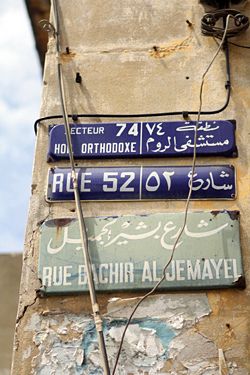
We’ve mentioned this already, but it’s really worth reiterating that Beirut is not the easiest place to practice your Arabic, as the locals generally feel more comfortable speaking to Europeans in French or English. If your Arabic is advanced it’s not quite such an issue, but beginners will most likely struggle!
There are ways around this, like sharing a flat with a local. However it’s important to ensure beforehand that they are 1) definitely willing to speak Arabic with you and 2) relatively friendly and sociable, so you’ll actually have the chance to speak to them on a regular basis!
There are also, obviously, a lot of Syrians living in Lebanon at the moment. The culture in Syria is less European-influenced than in Lebanon, and Syrians are often much happier speaking to foreigners in Arabic.
Traffic
When you ask a Beiruti how long it takes to get somewhere, instead of getting an answer you will be met with a question – “with traffic…?” There are, invariably, two answers to such questions. One will tell you how long it would take to drive there without stopping, and the other will tell you how long it will actually take – usually considerably longer, if not twice the amount of time!
Traffic in Beirut is notoriously bad, which is especially frustrating given its size compared with other, larger cities in the region. But if you’re living near your language school and you’re happy to walk then you shouldn’t have a problem. Getting in and out of the city at weekends, however, can be somewhat of a nightmare if you don’t time it right.
 Beirut’s infamous traffic (image: Step Feed)
Beirut’s infamous traffic (image: Step Feed)
You may have heard about other daily issues that are equally, if not more frustrating for the locals themselves. Bureaucratic inefficiency, periodic rubbish crises, chaotic plumbing and daily power cuts are among them but, true to form, Beirutis always manage to get on with life amid such inconveniences. In the case of the electricity, for example, most locals now have an app on their phone telling them what time the power will cut out each day.
 (image: Reuters)
(image: Reuters)
 Beirut’s rubbish crisis (image: The Telegraph)
Beirut’s rubbish crisis (image: The Telegraph)
Finally, Beirut is not a cheap city compared with elsewhere in the region. Public transport is pretty reasonable, but other than that (rent, groceries and eating/drinking out), expect to pay similar prices to most of the UK – though not quite as much as notoriously expensive cities like London and Paris.
So if you’re hoping that living in the Middle East for a while will save you some money, perhaps Beirut is not the right city for you…
 Beirut nights out are epic – but they don’t come cheap (image: The961)
Beirut nights out are epic – but they don’t come cheap (image: The961)
Language schools
Institut Français du Proche-Orient (IFPO):
IFPO’s rigorous MSA programme has a reputation as one of the best in the region. However, it really depends on the kind of course content you’re looking for and how you prefer to learn. IFPO’s MSA course is delivered through the medium of literature and culture and is taught 100% in Arabic. So it’s not necessarily the most practical and, again, not ideal for beginners.
Saifi Institute for Arabic Language:
Saifi Institute is generally considered better for amiyya (Lebanese dialect) and offers small group and one-on-one sessions with its teachers, giving you excellent practice and the freedom to focus on the topics and areas (speaking, reading, media etc.) most relevant to you.
Saifi is a very sociable option for students. It’s conveniently located in Ashrafieh, one of the oldest neighbourhoods of Beirut where many students choose to live, and within walking distance of Mar Mikhael’s buzzing bars and restaurants. It also has its own restaurant, rooftop bar and a hostel for shorter stays, and offers a variety of excursions to other parts of Lebanon.
Neither IFPO nor Saifi are particularly cheap, but neither is Beirut in general.
American University of Beirut (AUB):
AUB’s Centre for Arab and Middle Eastern Studies offers two 7-week summer programmes. One teaches Lebanese Arabic and the other Arabic Language and Culture. Its programmes are intensive, cramming a lot of content into a relatively short space of time, but they’re thorough and generally well regarded.
 Students and AUB (image: Inside HigherEd)
Students and AUB (image: Inside HigherEd)
So, what sets Beirut apart from other cities in the region?
The vibe! Beirut’s buzzing social scene reflects the locals’ fun-loving way of life and their love to party. It is a city like no other in the way that subtle traces and memories of war are everywhere, but on the surface things are shiny and new and life just goes on. Beirutis themselves are the perfect example of this, with their life-goes-on attitude, their sharp fashion sense and their infectious energy (not to mention their love of plastic surgery…!).
 Beiruti street style (image: Raghunter)
Beiruti street style (image: Raghunter)
Beirut, if slightly chaotic, is less of a culture shock for visitors from the West than other cities in the Middle East because of the European and Christian influences. While some might prefer a more traditionally “Arab” experience, this has the benefit of making it considerably easier to make friends and socialise with the local community as there is less of a cultural barrier.
 Arabic students in Beirut (image: Daily Star)
Arabic students in Beirut (image: Daily Star)
However, it’s important to remember that the more relaxed approach to things like going out and drinking alcohol is not representative of the whole of Lebanon – or even the whole of Beirut. There are some parts of the city that are more conservative (like the south of the city, which is controlled by Hezbollah) and it’s important to respect that.
Beirut is a fascinating place to be if you’re interested in politics or international relations. The constant security presence that hums in the background of everyday life serves as a daily reminder of Lebanon’s bloody recent history and its proximity to regional conflicts. It’s also a great place for networking because many journalists, NGOs and security professionals operating elsewhere in the Middle East base themselves in Lebanon.
 The security presence on Lebanon’s streets serves as a reminder of Lebanon’s recent experiences of war (image: The National)
The security presence on Lebanon’s streets serves as a reminder of Lebanon’s recent experiences of war (image: The National)
Lebanon is unique to the region in that it is home to a wide array of ethnic, religious and sectarian groups. Its population is more balanced in this way than many other countries in the region, whose populations are often dominated by one group or sect. While this has led to conflict in the past, there is quite a strong sense of Lebanese national identity, and the Lebanese people demonstrate every day that there is more to the Middle East than conflict and sectarianism.
 Lebanon’s religious diversity means it’s not uncommon in Beirut to stumble upon a mosque next door to a church (image: Against the Compass)
Lebanon’s religious diversity means it’s not uncommon in Beirut to stumble upon a mosque next door to a church (image: Against the Compass)
Beirut in 3 words… okay, 4:
Live for the moment

If you enjoyed this, you might also like:
The Best Cities to Study Arabic in the Middle East: Muscat
The Best Cities to Study Arabic in the Middle East: Amman
The Best Cities to Study Arabic in the Middle East: Fes
Villa Paradiso – Lebanon’s best kept secret
Please leave a comment or send an email to info@pinkjinn.com if you have any questions, suggestions, or other information you would like us to include in this series about studying Arabic in the Middle East. We’d love to hear from you!


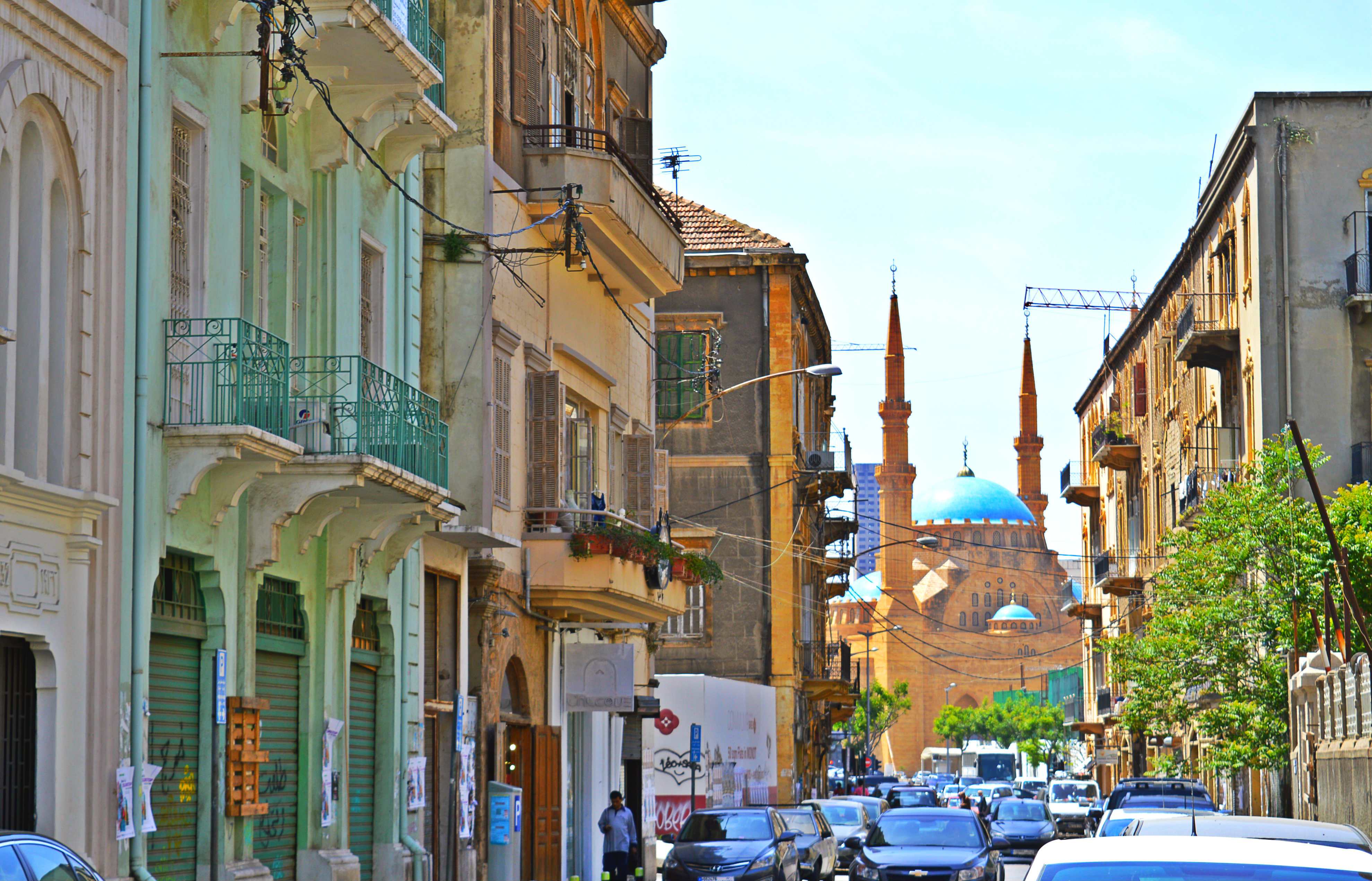
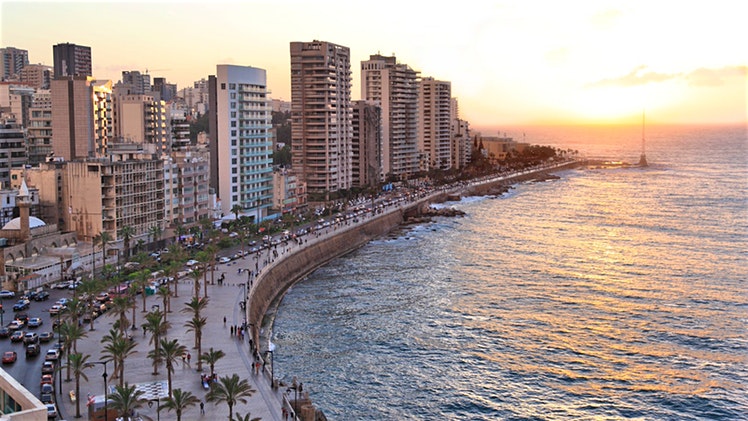
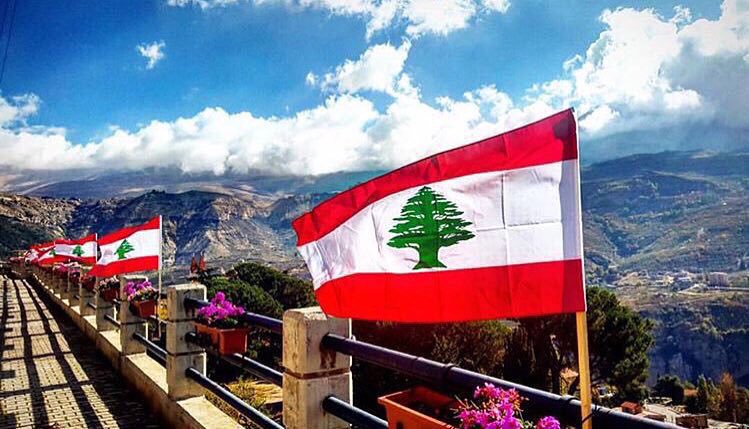
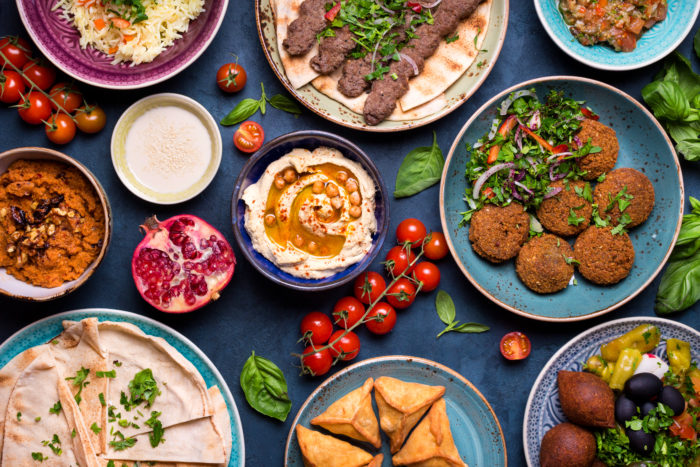
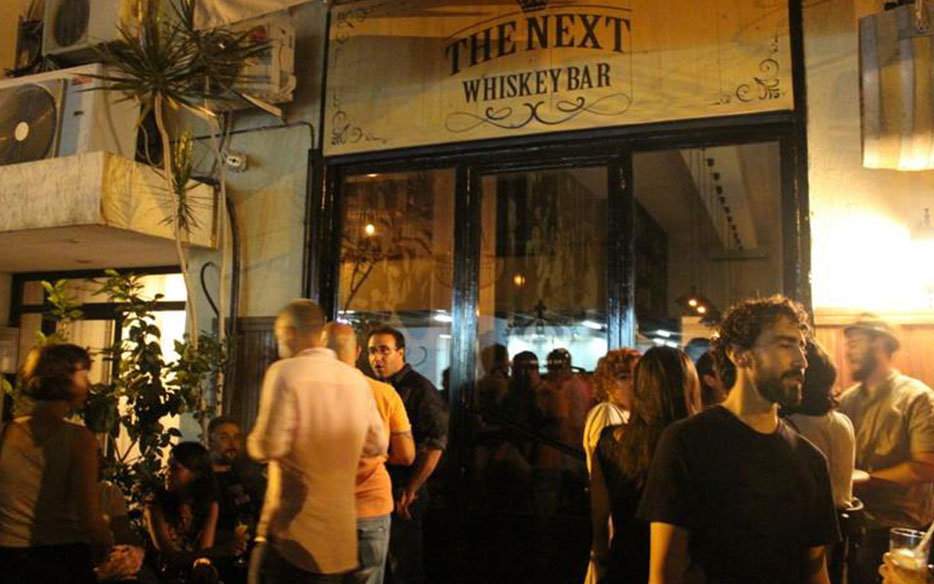 Patrons of a whiskey bar in the trendy neighbourhood of Mar Mikhael spill out into the street (image:
Patrons of a whiskey bar in the trendy neighbourhood of Mar Mikhael spill out into the street (image: 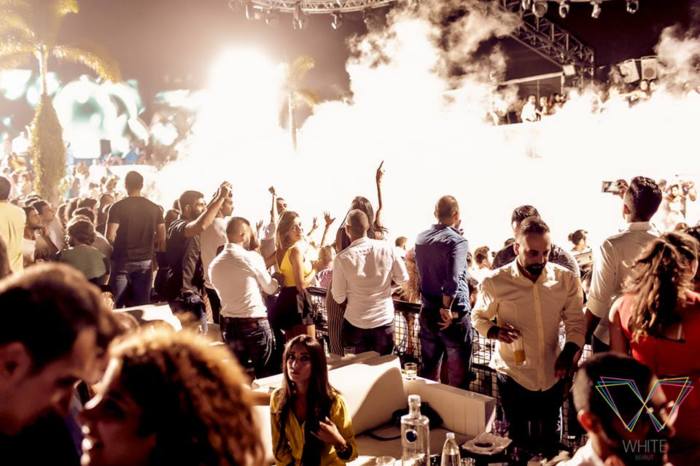 Beirut is famous for its nightlife (image: Step Feed)
Beirut is famous for its nightlife (image: Step Feed)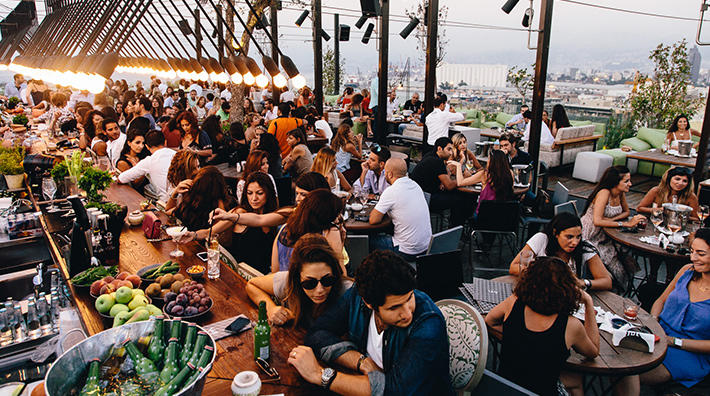 Rooftops are the place to be in Beirut during the summer (image: Mercedes Benz)
Rooftops are the place to be in Beirut during the summer (image: Mercedes Benz)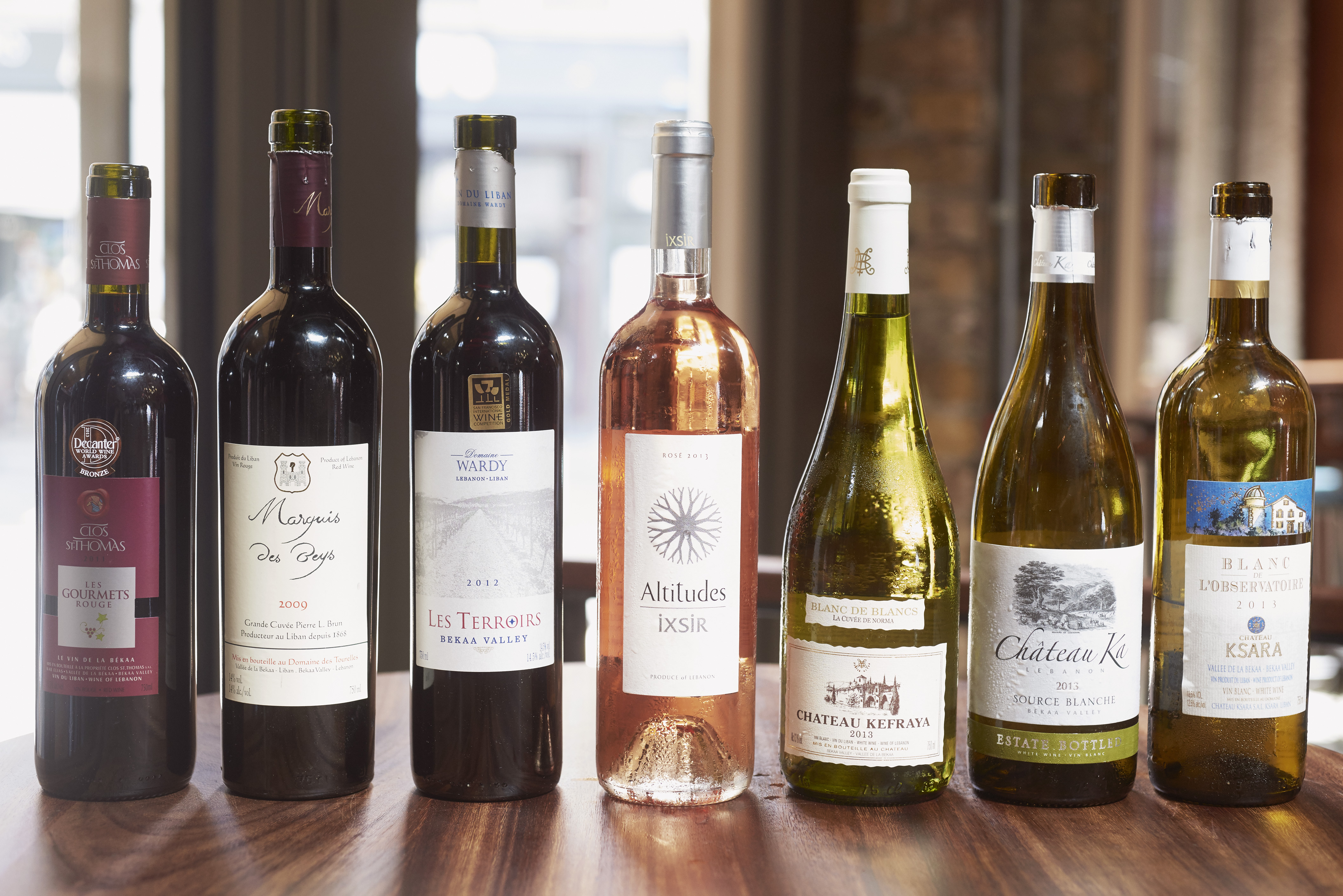
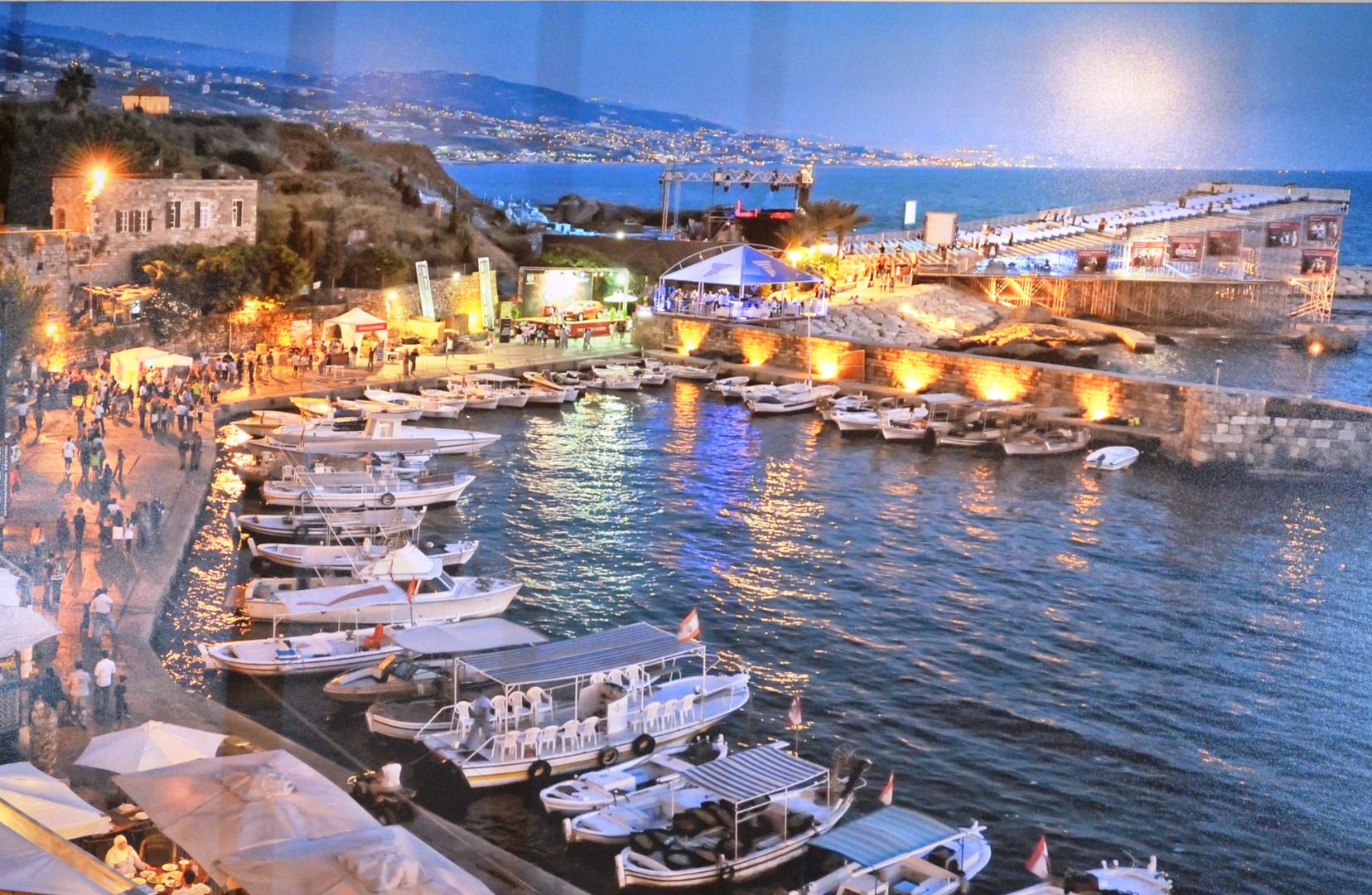
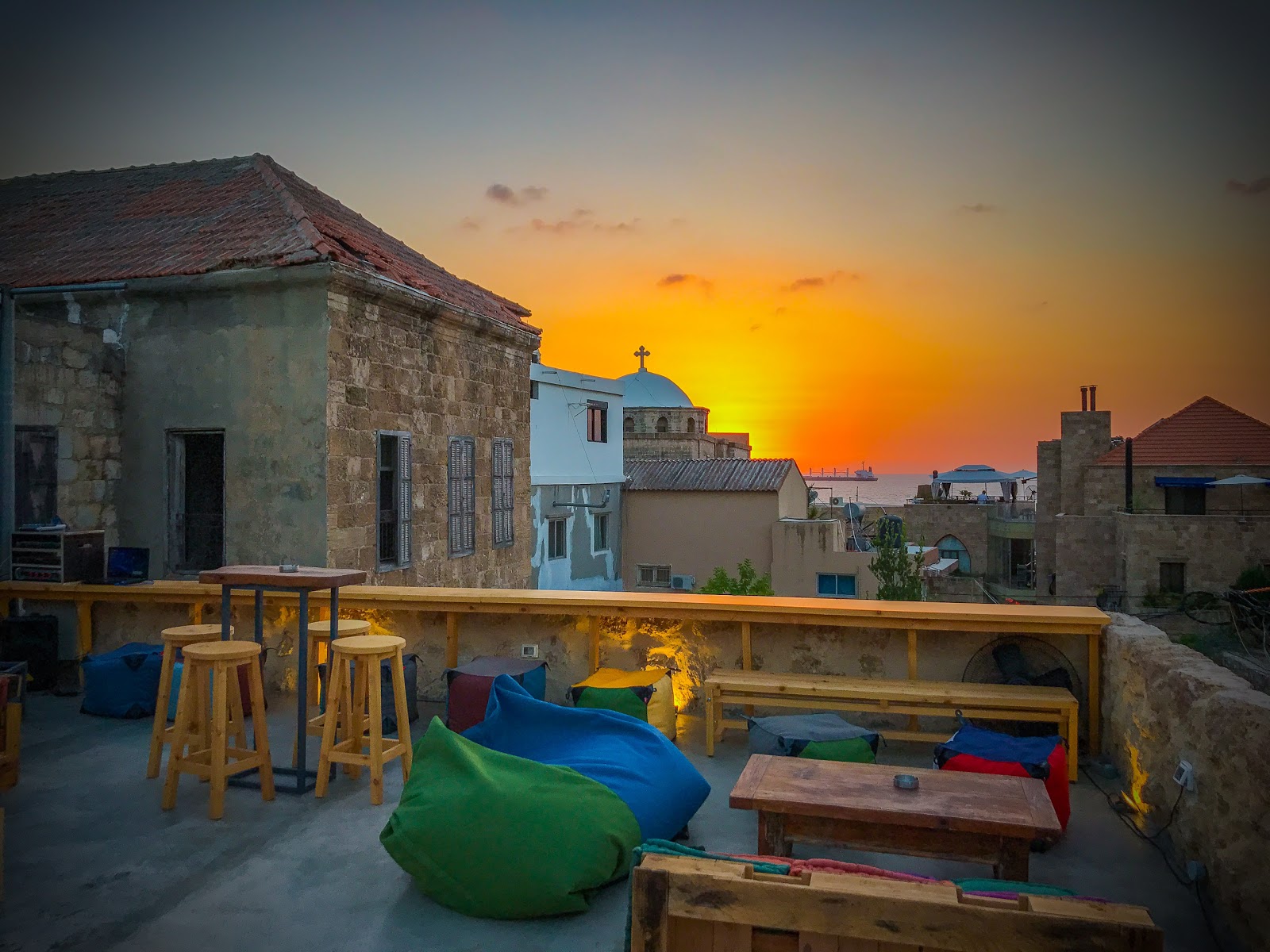
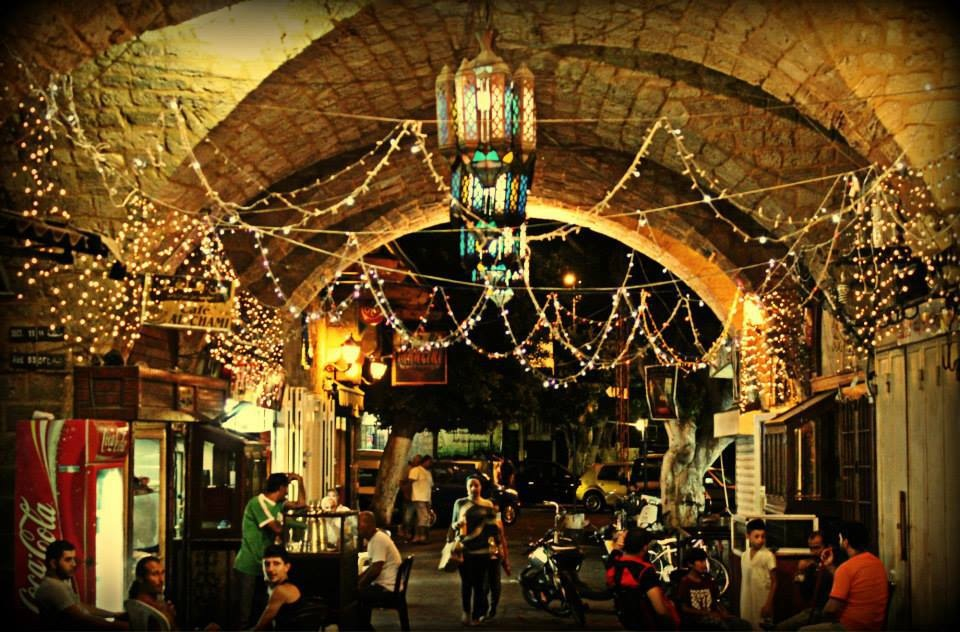
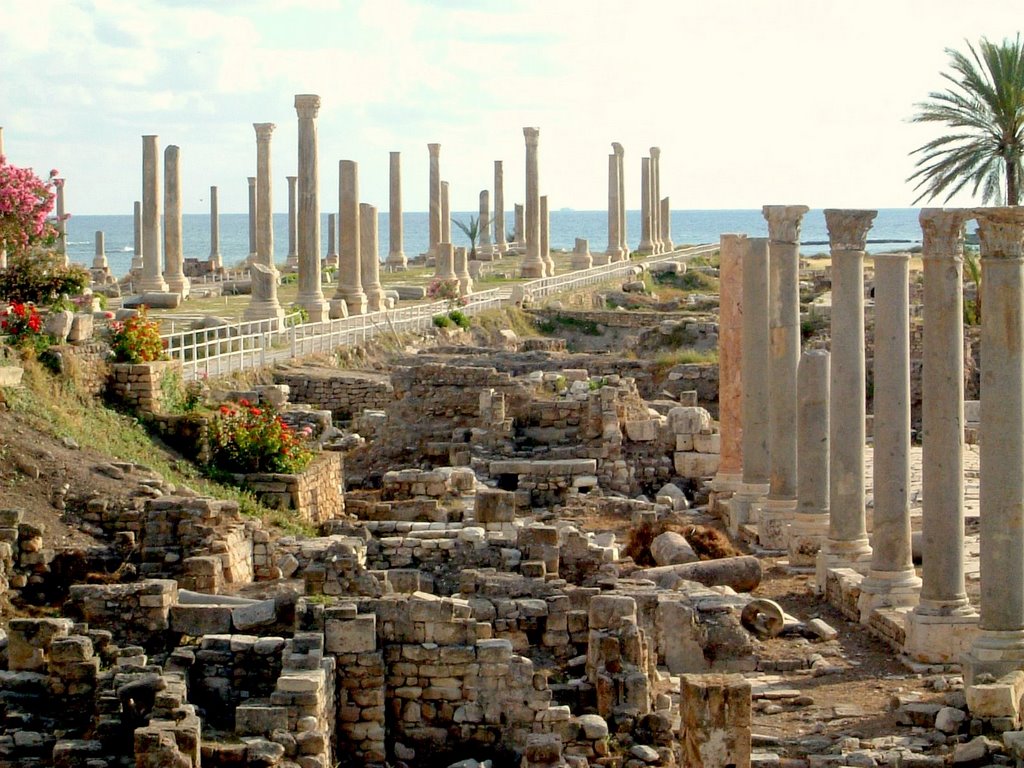
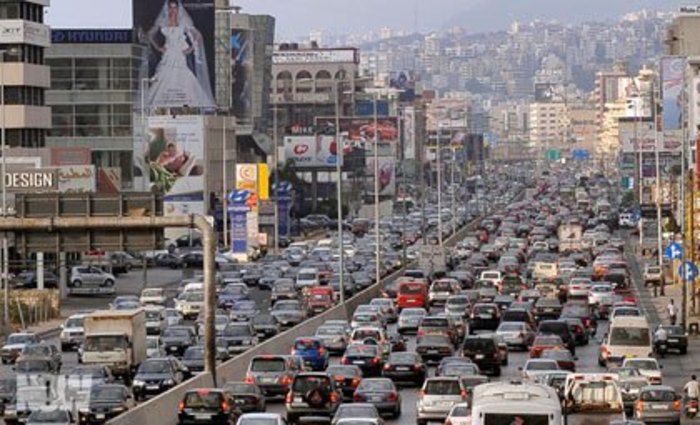
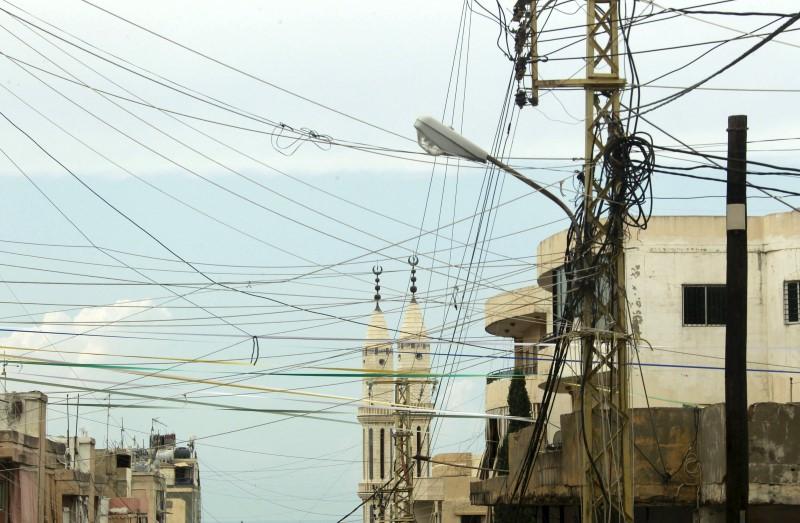
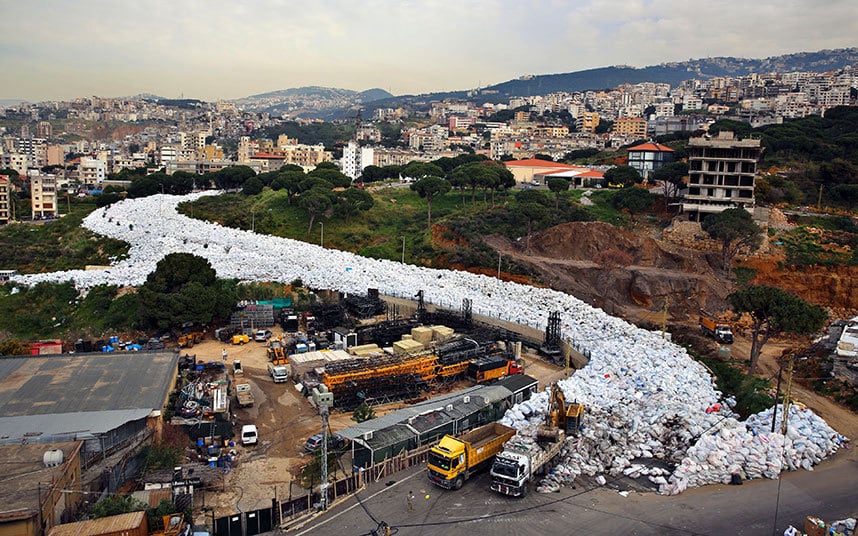

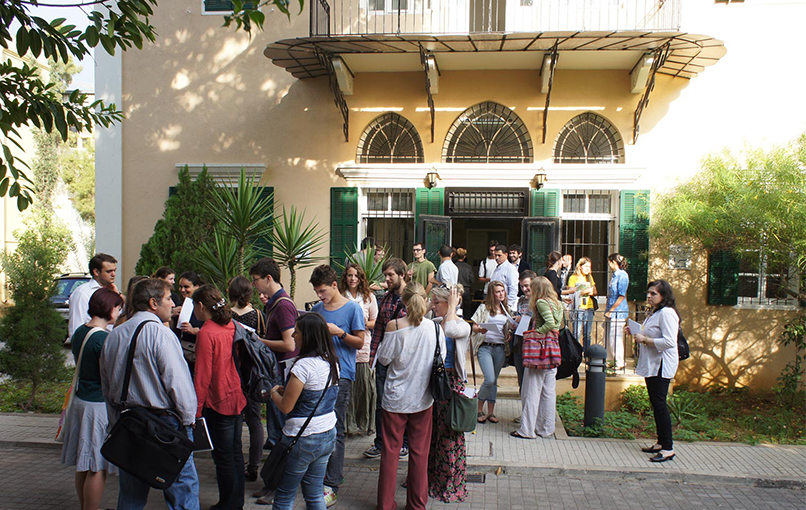
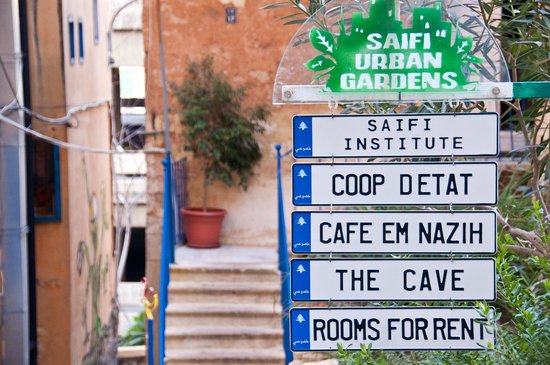
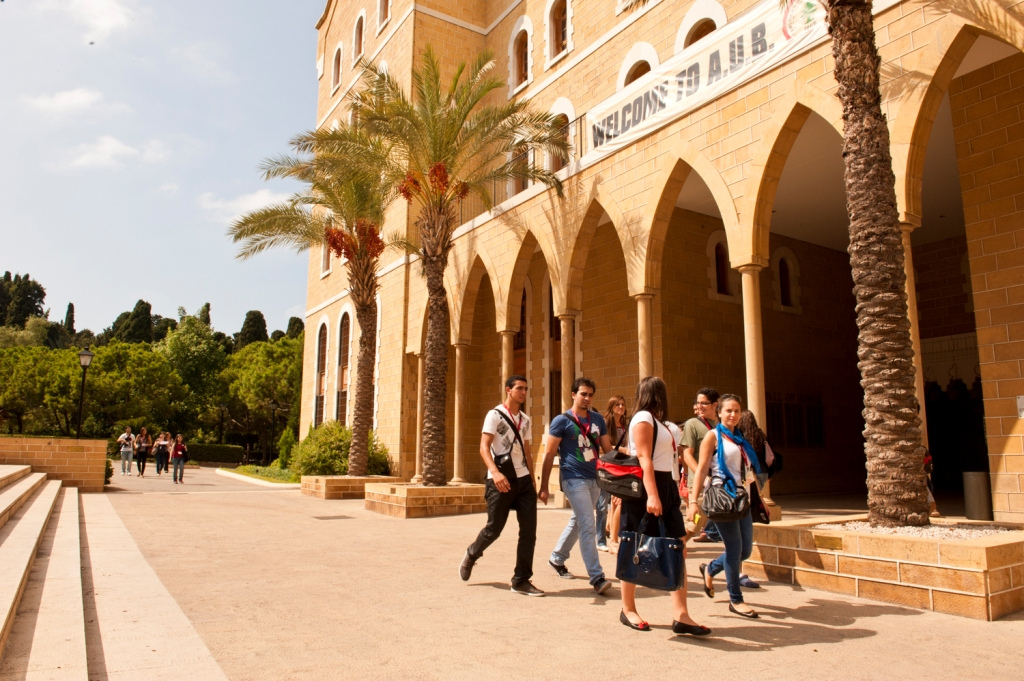
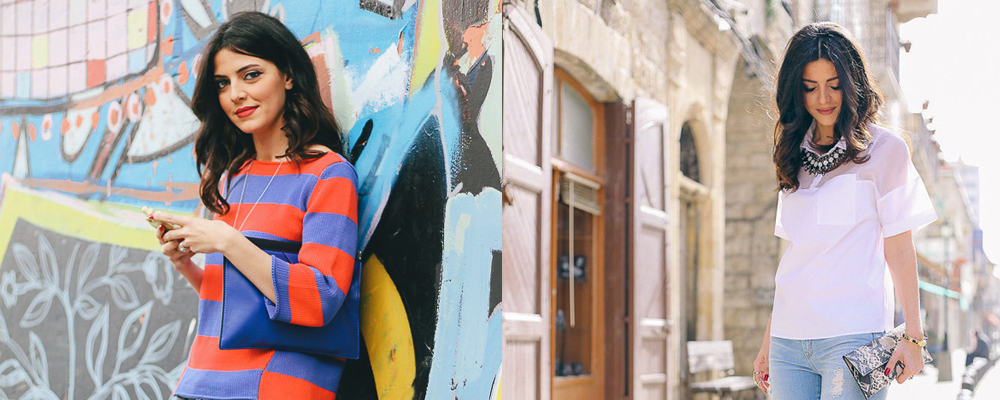
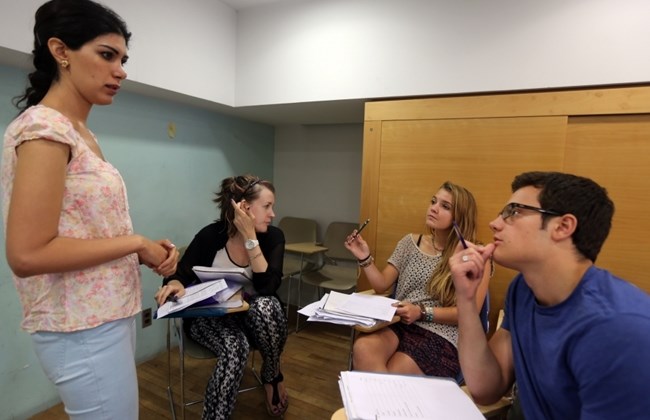 Arabic students in Beirut (image: Daily Star)
Arabic students in Beirut (image: Daily Star)